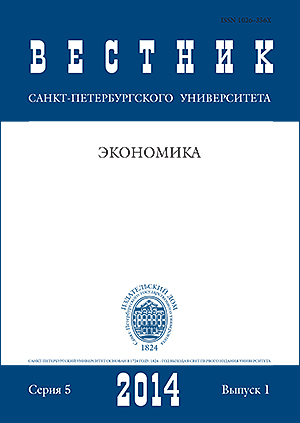Russia in the System of Governance of the World Economy: from (self)isolation to Chairmanship in G20
Abstract
The article aims at identifying the key periods in Russia’s integration into the system of global governance through the prism of international political economy. One of the most important features of post-Soviet developments was intensive interplay of political and economic markets which provided for Russia’s accession to G8 and later to WTO in exchange for initial commitments by Yeltsin administration to regard NATO as the main pillar of the post-cold war security architecture. Current stage of Russia’s participation in the global governance is characterized by its inclusiveness in practically all global institutions of the world economy, by its active role in agenda setting both as a state and as a member of titutions (G8, G20, BRICS) and willingness to further democratize postcold war international order. Refs 40. Tables 7.
Keywords:
global governance, international regime, government power, contact group
Downloads
References
References in Latin Alphabet
Translation of references in Russian into English
Downloads
Published
How to Cite
Issue
Section
License
Articles of the St Petersburg University Journal of Economic Studies are open access distributed under the terms of the License Agreement with Saint Petersburg State University, which permits to the authors unrestricted distribution and self-archiving free of charge.






